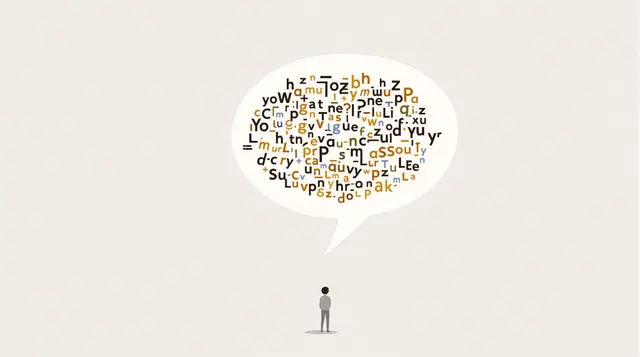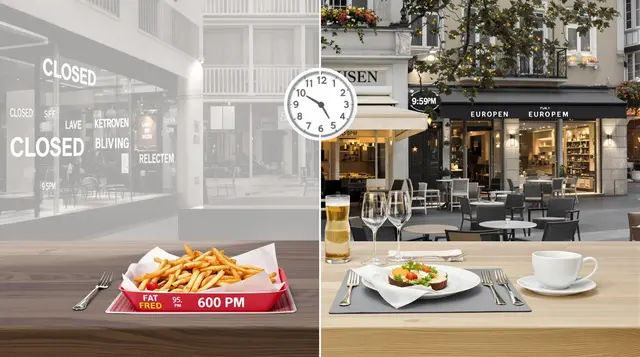
While Instagram-worthy shots of cobblestone streets and dreamy café culture might paint Europe as a utopian escape, the reality of relocating across the Atlantic comes with sobering challenges that many Americans rarely consider. From byzantine bureaucracy to eye-watering tax rates, the European dream often collides hard with reality.

Before packing your bags for that idyllic European lifestyle, it’s crucial to understand the significant hurdles that await. The romantic notion of living in Europe frequently overshadows the practical difficulties that can make daily life surprisingly challenging for American expatriates.
Higher Taxes and Lower Wages

Life in Europe comes with a significant financial trade-off. While universal healthcare sounds appealing, it’s funded through substantially higher tax rates that can take a bigger bite out of your paycheck compared to the U.S. In Germany, for instance, workers face some of the highest tax burdens, with rates reaching up to 45% for top earners.
Additionally, European salaries typically trail behind their American counterparts. Even in high-paying sectors, professionals often earn less than they would in the States. When combined with steeper taxes and a generally higher cost of living in major European cities, your disposable income could take a considerable hit after relocating across the Atlantic.
Complicated and Expensive Visa Processes

Getting legal permission to live in Europe is a bureaucratic maze that can drain both your patience and wallet. Non-EU citizens face strict regulations, including proving substantial financial stability through bank statements and securing employment before arrival. In Germany, for instance, students must maintain a specific balance in their accounts as proof of self-sufficiency.
The process often requires multiple visits to embassies, certified document translations, and various administrative fees. Work permits come with their own set of hurdles, frequently requiring employers to prove they couldn’t find a suitable EU candidate before hiring you. For many Americans, these complex immigration requirements create significant barriers to realizing their European dreams.
Bureaucratic Challenges

European bureaucracy can quickly become a nightmare for Americans used to more streamlined systems. In France, even simple tasks like opening a bank account or registering for healthcare can involve multiple office visits, stacks of paperwork, and weeks of waiting. Germans have a saying: “Everything has an order” – and they mean it literally.
The process of getting anything done often requires visits to multiple government offices, each with limited hours and long queues. Important documents frequently need certified translations, and many offices still operate primarily in their local language with little English support. What might take a single afternoon in the U.S. can easily stretch into weeks or months in Europe.
Smaller and More Modest Living Spaces

If you’re used to spacious American homes, European living quarters might come as a shock. Apartments often feel more like oversized closets, with refrigerators barely bigger than mini-fridges and washing machines tucked into tiny kitchens. Many European supermarkets mirror the size of U.S. convenience stores, reflecting the smaller scale of daily life.
Storage space is at a premium, and you’ll likely need to adjust to life without walk-in closets or generous pantries. Most urban dwellers trade backyards for small balconies, and parking spots are a luxury rather than a given. Even appliances are scaled down – expect compact dishwashers and dryers that leave clothes slightly damp due to space-saving designs.
Limited Consumer Choices

Shopping in Europe requires a significant adjustment for Americans accustomed to endless options and 24/7 convenience. European grocery stores often stock fewer brands and varieties, with product selections rotating seasonally rather than being available year-round. The American concept of bulk shopping doesn’t translate well to European life, where daily shopping for fresh items is the norm.
Consumer electronics typically cost more and offer fewer options, while American brands may be hard to find or unavailable entirely. Even basic items like over-the-counter medications have limited variety and are often only available at pharmacies with restricted hours. This cultural shift from abundant choice to minimal selection can be particularly challenging for Americans used to having everything at their fingertips.
Distance from Family and Friends

Moving to Europe means accepting significant physical and emotional distance from your support network back home. While video calls and social media help bridge the gap, they can’t replace the warmth of family gatherings or impromptu coffee dates with friends. The time difference alone makes staying connected challenging – when you’re ending your workday, loved ones are just waking up.
The financial burden of maintaining these relationships is substantial. Round-trip flights to the U.S. often cost thousands of dollars, limiting visits to once or twice a year. Major life events, family emergencies, and holidays become complicated decisions weighing emotional needs against practical constraints. This separation can lead to feelings of isolation and missing crucial moments in your loved ones’ lives.
Language Barriers

Despite English being widely spoken in European business settings, language barriers can still create significant hurdles in daily life. Many Europeans switch to their native language in social situations, leaving English speakers feeling isolated. Even in major cities, essential services like healthcare and government offices often operate primarily in the local language.
For Americans seeking employment, language requirements can be especially strict. Many European companies require near-native fluency in the local language, even for positions advertised as English-speaking. In France, for instance, mastering French is practically mandatory for full integration into professional and social circles. Government paperwork, rental agreements, and banking documents typically come only in the local language, making professional translation services a frequent necessity.
High Cost of Living in Some Areas

Living expenses in major European cities can strain even substantial savings. Paris and Switzerland’s urban centers consistently rank among the world’s most expensive places to live, with sky-high housing costs eating up a significant portion of income. In Paris, finding affordable accommodation often means settling for a tiny apartment far from the city center.
The introduction of golden visa programs has further inflated property prices in desirable locations, as wealthy investors snap up real estate. While some Eastern European cities offer more reasonable costs, popular destinations like London, Amsterdam, and Copenhagen demand premium prices for everything from groceries to entertainment. Even basic utilities and transportation can cost significantly more than in many U.S. cities.
Different Work Culture and Attitudes
European work culture can be jarring for Americans used to a fast-paced, achievement-driven environment. While the generous vacation time – often 5-6 weeks annually – sounds appealing, it comes with different expectations. Many European offices operate at a slower pace, with less emphasis on immediate responses and after-hours availability.
In France, discussing work during lunch breaks is considered poor form, and German colleagues might view working late as a sign of poor time management rather than dedication. The structured work environment often means strict adherence to designated break times and little flexibility in scheduling. Meetings tend to be more formal, with clear hierarchies and less casual interaction between management levels.
This cultural shift can be particularly challenging for American professionals accustomed to networking and rapid career advancement through personal initiative.
Social Problems and Political Changes
Europe’s reputation for progressive politics often masks underlying social challenges. Despite public commitments to equality, racism and xenophobia remain persistent issues, particularly affecting immigrants and people of color. Non-EU residents frequently face discrimination in housing, employment, and daily interactions.
The political landscape has grown increasingly complex, with the rise of right-wing populism in several countries creating an uncertain environment for expatriates. Brexit’s aftermath has complicated residency rights and cross-border movement, while anti-immigration sentiment has intensified in nations like Hungary and Poland.
These social tensions, combined with evolving political dynamics, can make integration especially challenging for Americans accustomed to different forms of diversity and inclusion.
Public Transportation Challenges
While Europe boasts extensive public transit networks, navigating them as a newcomer can be overwhelming. Train and bus schedules often require decoding complex timetables in multiple languages, and ticket machines frequently reject American credit cards. Despite the convenience of not owning a car, relying solely on public transport means planning around limited night service and dealing with frequent strikes that can paralyze entire cities.
The learning curve is particularly steep in regions where announcements and signage are exclusively in the local language. Even in major cities, last-minute schedule changes or route disruptions can leave you stranded if you’re not constantly checking local transit apps and updates.
Double Taxation for US Citizens

American citizens living in Europe face a unique financial burden – the requirement to file and potentially pay taxes in both their host country and the United States. Unlike most other nations, the U.S. taxes its citizens on worldwide income regardless of where they reside. This means you’ll need to report your European salary and investments to the IRS, even after paying local taxes.
While the Foreign Earned Income Exclusion allows you to exclude up to $120,000 of foreign earnings, any amount above this threshold faces double taxation. Additionally, complex reporting requirements for foreign bank accounts and investments can lead to hefty penalties if not handled correctly. Many Americans abroad find themselves hiring expensive international tax specialists to navigate these complicated obligations.
Adjustment to Local Customs and Lifestyle

Life in Europe demands significant cultural adaptation that many Americans find challenging. Dinner times can stretch remarkably late, with meals often starting at 9:30 PM or later in countries like Spain. This disrupts typical American routines and can be particularly difficult for families with children.
Europeans generally embrace a slower pace of life, which can frustrate Americans used to convenience and immediate service. Shops frequently close early, remain shuttered on Sundays, and may close for hours during midday breaks. Even basic errands require planning around these restricted hours.
Social customs also differ dramatically. Public displays of affection are more common, while casual conversations with strangers are often viewed as intrusive. Americans must learn to navigate these unwritten social rules or risk standing out as cultural outsiders.
The Reality Check
While Europe offers undeniable charm and quality-of-life benefits, the challenges of relocating there shouldn’t be underestimated. From navigating complex visa processes and dealing with double taxation to adapting to smaller living spaces and different social norms, the European dream comes with significant trade-offs that require careful consideration.
Before making the leap, it’s essential to weigh these challenges against your personal goals and lifestyle preferences. What might seem like minor inconveniences from afar can become major obstacles when experienced daily. The decision to move to Europe deserves thorough research and honest self-reflection about your adaptability to a fundamentally different way of life.






